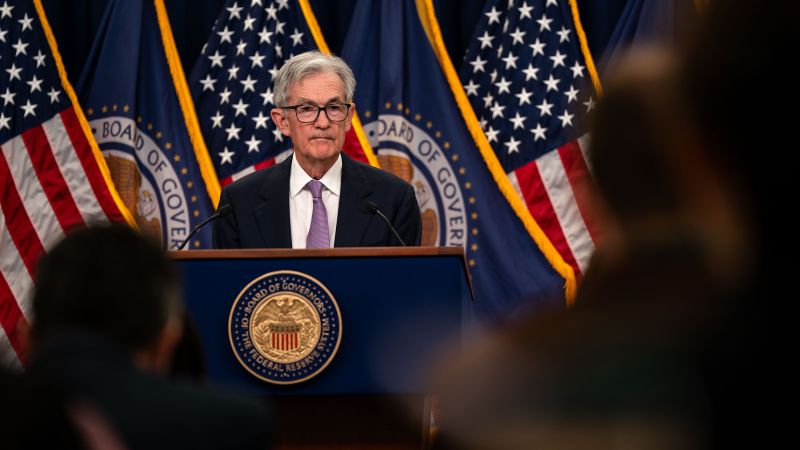
Why Trump’s tariff plans could lead to higher interest rates
CNN
President-elect Donald Trump’s promise to impose stiff tariffs against America’s three biggest trading partners is widely expected to push prices higher, which would set the stage for the Federal Reserve to stop cutting interest rates and possibly raise them instead.
President-elect Donald Trump’s promise to impose stiff tariffs against America’s three biggest trading partners is widely expected to push prices higher, which would set the stage for the Federal Reserve to stop cutting interest rates and possibly raise them instead. Fed Chair Jerome Powell said in a recent speech in Dallas that it is still too early to consider how Trump’s tariff plans would affect the US economy. Campaign rhetoric is one thing, but enacted policy is another. Trump, however, says he won’t waste any time, threatening last week to slap 25% tariffs on Mexico and Canada and an additional 10% duty on Chinese goods on the first day of his second term on January 20. Trump’s tariffs would almost certainly push up prices for imported goods like avocados, cars and tequila. That would affect about $1.5 trillion of goods that flow throughout North America, according to an estimate from the International Monetary Fund. Wall Street has already shown some concern over the possibility of inflation reigniting under a second Trump term, with bond yields ratcheting higher leading up to Election Day and in the weeks after. On the bright side, since persistently high inflation, induced by hefty tariffs, would prevent the Fed from lowering borrowing costs, cash-like and bond investments could keep some of their luster for a little longer, too. Fed officials will eventually develop economic models of how the US economy could perform under different tariff scenarios. Two potential developments they’ll consider will be whether retaliatory tariffs emerge from Trump’s plans, if enacted, and if Americans believe inflation will pick up.













